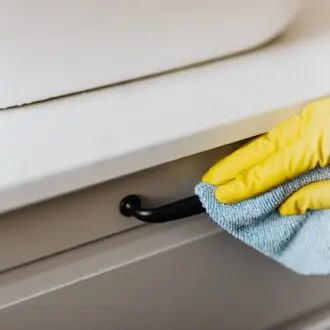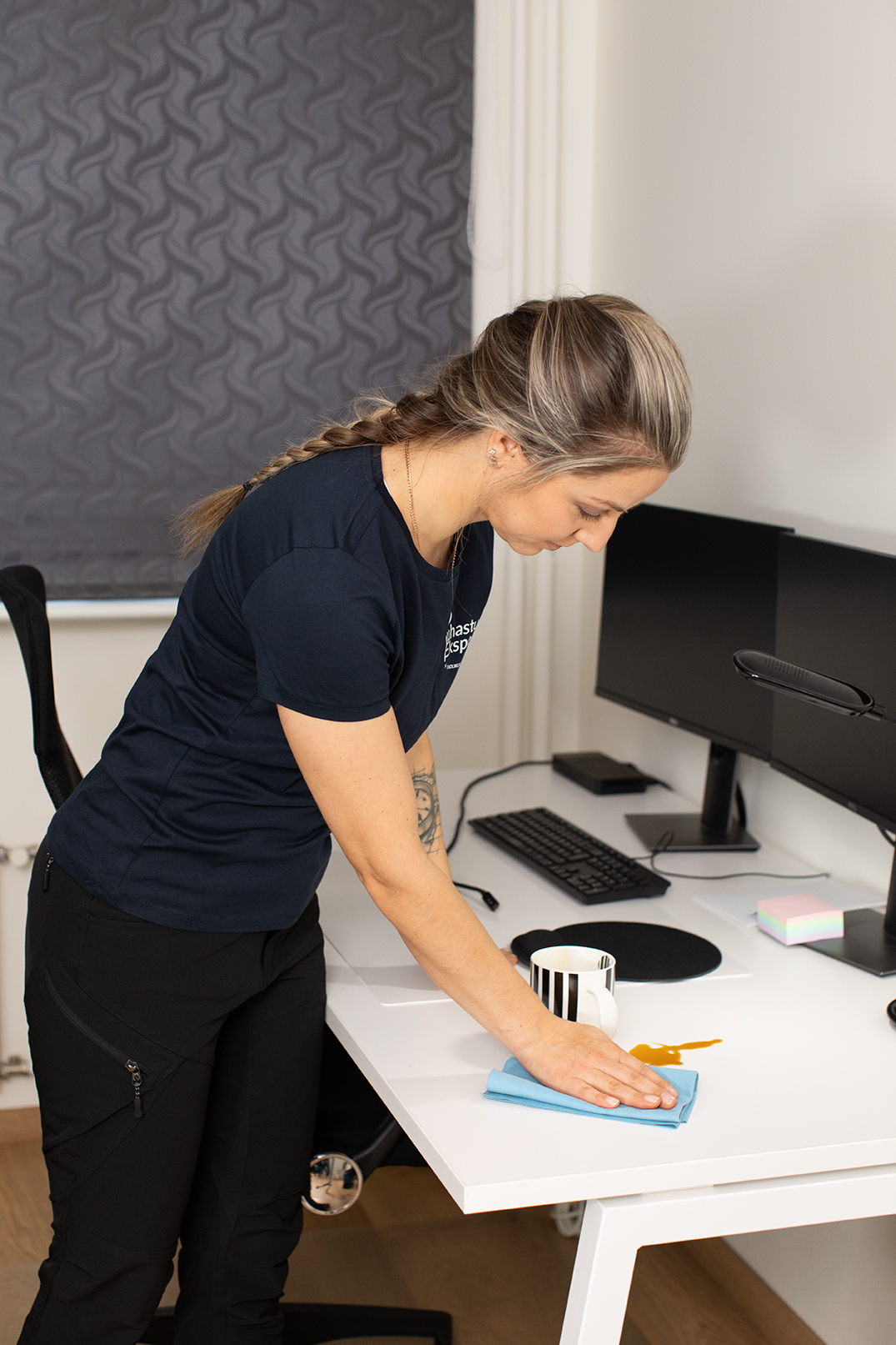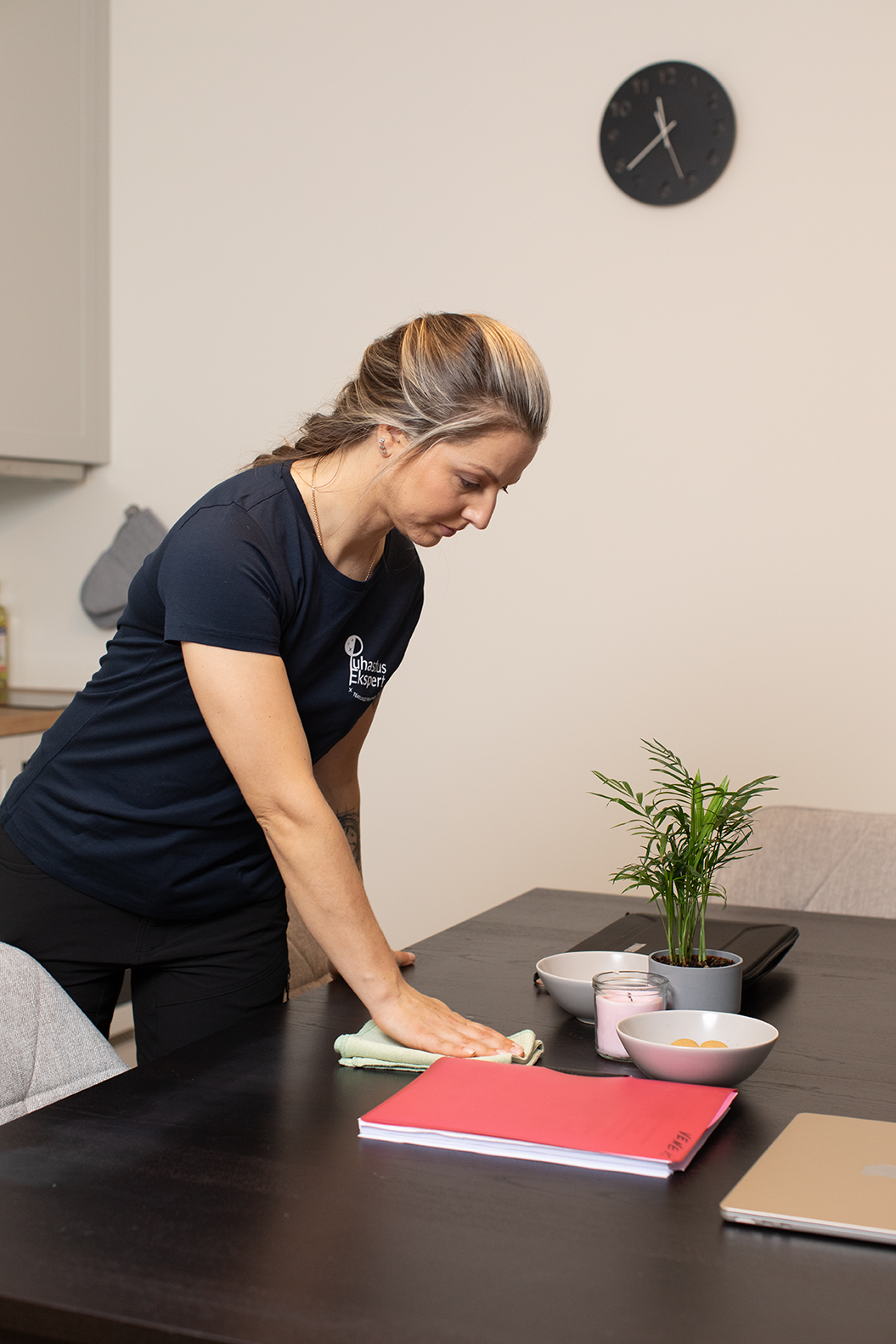info@puhastusekspert.ee +372 5611 1048
Daytime Cleaning is a Wise Investment!
Daytime cleaning is a wise investment!
Daytime cleaning helps change this!
2025. In June, I had the opportunity to speak in Brussels at the conference of the European Day Cleaning Alliance, where experts and policymakers discussed how daytime cleaning can transform the cleaning sector. Daytime cleaning makes cleaning visible, improves work quality, and values people. In Brussels, the message was clear: bringing cleaning to daytime hours is not merely a logistical change – it is a cultural and social investment in health, dignity, and sustainability. Cleaning saves lives. This is not just a slogan; it is a fact emphasized by international leaders in the cleaning industry, including ISSA.


- Visibility brings value
When cleaning takes place during the day, it becomes part of the daily rhythm of the workplace. People see, appreciate, and understand the importance of cleaning. Invisible work is often considered worthless, while visible work earns respect. Studies show that over 70% of office workers support daytime cleaning – this improves the profession’s image and helps build trust between cleaning staff and facility users.
Improved quality due to visibility, because only dirt that we see can be removed. Early in the morning or late at night, visibility is inevitably limited, which makes it difficult to see dirt. People tend to behave more responsibly in spaces when they see someone cleaning. This also helps users maintain a cleaner environment. The longer dirt remains on a surface, the more it adheres, spreads, or requires more resources to remove later. Daytime cleaning enables a quick, flexible, and needs-based response before problems escalate. - Health and well-being for cleaning staff
Working early in the morning or late at night isolates cleaning staff from family, friends, and society. This affects sleep, mental health, and long-term well-being. Studies confirm that non-standard working hours are associated with higher health risks and lower job satisfaction. Daytime cleaning allows for a more fulfilling life, meaning spending time with loved ones, utilizing various services, and participating in community life. This also results in a more stable workforce, lower staff turnover, and improved service quality. - Operational and environmental benefits
Work outside regular working hours incurs hidden costs: lighting, heating, ventilation, and security services in empty buildings. Logistics also become more complex, including the supply of cleaning materials, supervision, and daily communication.
Practical example: if cleaning takes place late at night, the cleaning company may be forced to arrange transport home for employees at a time when public transport is no longer running. This increases both financial cost and environmental footprint. Ultimately, these costs (both direct and indirect) are passed on to the service price. Daytime cleaning helps reduce excessive energy consumption and simplifies the coordination of activities during working hours when all parties are available. - Different workforce, different approach
Daytime cleaning requires not only specialized knowledge but also soft skills. Cleaning staff must be well-trained, possess good communication skills, and be confident in moving among clients and facility users. This change requires better training and cooperation between clients, companies, and employees. It should be noted that early morning and evening cleaning staff are often part-time employees, students, or immigrants whose language skills may be limited. The transition to daytime work requires inclusive HR activities, support systems, and an understanding that it often involves a different employee profile. This is not only an organizational but also a human change for which all parties must be prepared.
Daytime cleaning is not merely a schedule change; it is a cultural shift. It values people, improves health, saves energy, and strengthens relationships. Yes, it requires planning and investments, but the return is clear: healthier employees, better service, and a more sustainable future.
Let’s make cleaning visible. Let’s make it valuable. Let’s make it work – for everyone. Do you need help transitioning to daytime cleaning? Write to us and let’s find a solution together!
 FAQ: Daytime Cleaning
FAQ: Daytime Cleaning
Does daytime cleaning interfere with office work?
No, it does not interfere if the work is well-planned. Cleaning is carried out through short and precisely timed interventions so as not to hinder employees. Many employees say that the premises remain cleaner for longer this way, and the overall impression improves.
Is daytime cleaning more expensive?
Usually not. Since there is no need to light, heat, or secure the building at night, costs are reduced. Also, dirt is found more quickly and cleaned immediately, which prevents additional work and reduces the cost of cleaning supplies.
What do cleaning staff need to do differently during the day?
In addition to regular cleaning, cleaning staff must be able to communicate politely and be considerate of people’s work. Attentiveness and the ability to act according to the situation are important.
How to know if daytime cleaning is successful?
The result can be assessed, for example, by employee and client satisfaction, cleaning quality, or response speed. It can also be monitored whether energy consumption and other ancillary costs have decreased.
Author: Helge Alt